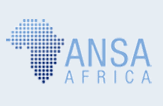| ANSA-Africa Full Circle Newsletter: December 2009 |
|
|
| Subscribe to the newsletter |
|
Access to information can fundamentally alter society’s power relations
Russell Wildeman, Programme Manager of Idasa’s Economic Governance Programme, demonstrates that in real and practical examples access to information on the part of the poor is truly empowering.
There is wide acceptance in governance circles that citizens and civil society need governments to function in a capable and accountable manner. Weak governments do not mean effective and efficient government and there is ample evidence to suggest that such governments create fertile grounds for the flourishing of corruption and other anti-democratic practices.
However, even capable governments need citizens and civil society to establish a feedback and information loop that sensitise governments to the perspectives and concerns of ordinary people. This ideal scenario is what international donor organisations and civil society struggle for and, while the benefits of this approach are evident, this is not the way modern societies are organised. In fact, the opposite view seems to prevail, namely that human beings will always exist in societies that demonstrate a situation of information asymmetry.
At any one time, certain individuals will have access to information that others – those who need such information to further their own social and economic interests – may not have access to. This means the issue of unequal power in human relations persists. This happens in spite of the mass communication and information tools.
The depressing consensus is therefore that we may never attain a situation where information is completely unrestricted and where power relations allow for the maximum social and economic development of ordinary people.
The process of delivering education in economically disadvantaged communities demonstrates this point well. Poor parents depend on the professional teacher and management bodies to deliver education to their children that will help lift them out of poverty. Poor parents do not have the intellectual wherewithal to challenge and reverse important decisions taken on their and their children’s behalf. However, while this puts teachers and school management in a powerful position, schools remain vulnerable because they need active and understanding parents to achieve meaningful collaboration.
It is a mistake to view information as something that is given, immutable and which always has a fixed value. In poor communities, parents and learners are still capable of producing information that informs teachers and school management
Altering power relations
of their plight. Access to information in this situation not only means being able to converse with relevant school and learner information, but it also requires teachers and the school management body to value the information that poor parents and learners have.
It is this meeting of these perspectives that not only encourages parent empowerment and affirms the dignity of parents and their children, but equally suggests how the right of access to information should be practised and conceptually understood.
Power cannot and should not simply reside with those that have information (government officials), but the meaning and use of information requires that contesting parties have information that could fasttrack and intensify human development. There will always be a need for dialogue about the concept and value of right to access to information, what information is useful or harmful for the realisation of socioeconomic and political rights, who has access to information and how such access is distributed across different segments of society.
Heart of the debate
However, the reconciliation or attempted reconciliation of information should lie at the heart of the right to information debate. This view does not deny that power relations continue to thwart poor people’s access to information, but it constructs and accepts that dynamic human development is not possible in a supply-led delivery of information. Information obtained in this way is selective and potentially abusive and will not foreground the needs of ordinary citizens. This is arguably one of the most potent signs of repressive societies, whether these espouse “democracy” or any other form of government.
If we accept this interpretation of the right of access to information, then very basic functions that governments have claimed for themselves need to be re-examined. Budget information, especially non-financial information, involves the publishing of relevant social and economic indicators. Not only should there be a dialogue about the establishment of such indicators, but citizens and civil society organisations need to be jointly involved in monitoring the realisation of agreed indicators.
Score cards
While citizens won’t use logical frameworks to assess progress, they have already resorted to score cards, budget tracking surveys and anecdotal evidence about the impact of policies on their personal lives. It will be unconscionable if governments do not take such information into account and reflect on how such feedback influences the business of government delivery.
Should such information and feedback loops become institutionalised, information and access to information will rightly contribute to the further democratisation and equalisation of modern societies. We should not be asking for anything less.
In this edition of Full Circle, we explore the issue of access to information as the cornerstone of improved service delivery but also consider its potential to harness and strengthen active citizen engagement with government for good governance.
We sincerely hope these articles provoke your thinking and help you reflect on this issue and take the debate of access to information a step further in the African context.
|

